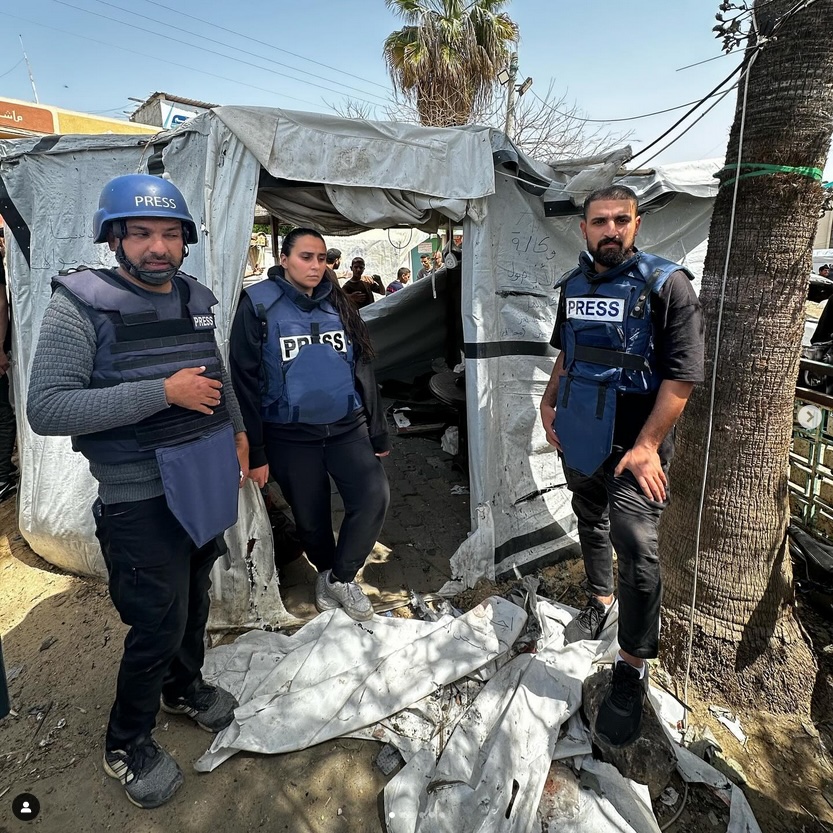Motaz Azaiza, Hind Khoudary and Bisan Owda are all Palestinian journalists who have reported on the war in Gaza. And although Azaiza has had to leave and now reports from afar, Owda and Khoudary still remain in Gaza. They, along with several others, are providing vital information on the devastation Palestinians face everyday.
This is something that many Canadian journalists have been unable to do, mainly because international journalists are not allowed into Gaza, except on controlled expeditions hosted by the Israel Defense Forces. So Palestinian journalists are providing a critical source of information.
But the stories they are telling are not being picked up by most western news outlets.
And many western journalists have spoken out against what they say is a stifling of Palestinian voices and perspectives in their newsrooms. In February, many CNN staffers felt that the media giant had a pro-Israel slant, according to a report in The Guardian. According to these CNN reporters, Palestinian sources were often met with skepticism while Israeli sources were usually accepted at face value. Others accused the network of censoring journalists who wanted to incorporate more Palestinian sources.
There have been similar accusations from within the New York Times and other major news outlets.
These allegations raise a lot of questions.
What is the role of the news media in reporting on war and conflict in other countries?
Who is a reliable source? And what constitutes independent and objective journalism — or does it even exist?
These are questions Sonya Fatah and Asmaa Malik, our guests on this episode of Don’t Call Me Resilient, have spent a lot of time thinking and writing about. They are both professors of journalism at Toronto Metropolitan University whose research focuses on newsroom culture, global reporting practices and equity in journalism. They are co-authors of a recent article in The Walrus detailing press freedom concerns they say go far beyond Gaza.
“The deep injustice that’s being done is that this work [of Palestinian journalists on the ground] isn’t being amplified,” Malik says. “News organizations can amplify those voices, but also augment them and add to them and bring that human perspective to this cold clinical idea of ‘objectivity’ and reportage as we understand it.”
Adds Fatah: “Instead of embracing them and instead of standing up and saying this is a huge crisis and we are in support, there has been silence.”
This article is republished from The Conversation under a Creative Commons license. Read the original article.

